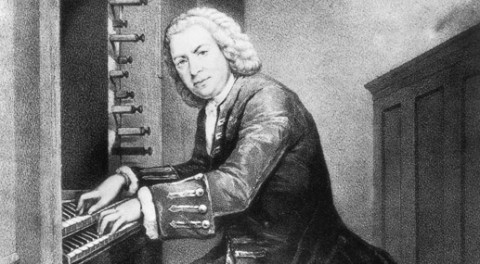
Uwe Siemon-Netto, "J. S. Bach in Japan" (First Things, June 2000). What an amazing article! Here are a few teasers ...
Twenty-five years ago when there was still a Communist East Germany, I interviewed several boys from Leipzig’s Thomanerchor, the choir once led by Johann Sebastian Bach. Many of those children came from atheistic homes. “Is it possible to sing Bach without faith?” I asked them. “Probably not,” they replied, “but we do have faith. Bach has worked as a missionary among all of us.” During a recent journey to Japan I discovered that 250 years after his death Bach is now playing a key role in evangelizing that country, one of the most secularized nations in the developed world....[Hat tip E. Echeverria]
... “In their frenetic pursuit of production, speculation, and consumption,” Repp said, “the older Japanese have provided their offspring exclusively with materialistic values. But the youngsters are yearning for something more. The result is an enormous gap between the generations; they are no longer able to communicate with one another.”
... ”What people need in this situation is hope in the Christian sense of the word, but hope is an alien idea here,” says the renowned organist Masaaki Suzuki, founder and conductor of the Bach Collegium Japan. He is the driving force behind the “Bach boom” sweeping Japan during its current period of spiritual impoverishment. “Our language does not even have an appropriate word for hope,” Suzuki says. “We either use ibo, meaning desire, or nozomi, which describes something unattainable.” After every one of the Bach Collegium’s performances Suzuki is crowded on the podium by non-Christian members of the audience who wish to talk to him about topics that are normally taboo in Japanese society—death, for example. “And then they inevitably ask me to explain to them what ‘hope’ means to Christians.” ...
Japan’s Bach boom does, however, have one baffling aspect: how is it possible that melodies and rhythms from eighteenth-century Germany should please people of an entirely alien culture thousands of miles to the east? Tokyo musicologists have come up with an astonishing answer: Bach’s appeal to today’s Japanese is directly linked to a Spaniard’s first attempt to evangelize their ancestors 450 years ago.
... Believers were crucified, burned at the stake, tortured to death, or hanged upside-down over cesspools to intensify their suffering. Few Japanese were aware of this sinister aspect of their history until last year, when the Tobu art gallery in Tokyo commemorated the 450th anniversary of Francis Xaviér’s arrival with a massive exhibition spread over three floors.
The enormous crowds filing through this show were horrified by the cruelties its images portrayed. But there was one thing they did not learn at the Tobu Gallery: Western music managed to survive the persecution. The Jesuits had introduced Gregorian chant to Japan and built organs from bamboo pipes.... By the time Christianity was totally outlawed in Japan in the early seventeenth century, elements of Gregorian chant had infiltrated Japan’s traditional folk music. That influence remained strong enough to help Johann Sebastian Bach’s music sweep across the island nation more than four centuries later.
This explains the amazing success of Bach’s collected works, which were published by Sogakukan, a Tokyo company, to commemorate the 250th anniversary of the composer’s death. This collection of fifteen volumes, including 156 CDs accompanied by books with the original lyrics in German and Latin plus their Japanese translations, cost a staggering $3,000 each. Within weeks the first edition of five thousand copies was sold out.
The collection’s editor, Tesuo O’Hara, described himself as one of Christianity’s sympathizers, though not a believer. He could have fooled me. “What makes Bach so successful among the Japanese?” I asked him. O’Hara replied, “Bach gives us hope when we are afraid; he gives us courage when we despair; he comforts us when we are tired; he makes us pray when we are sad; and he makes us sing when we are full of joy.”

No comments:
Post a Comment